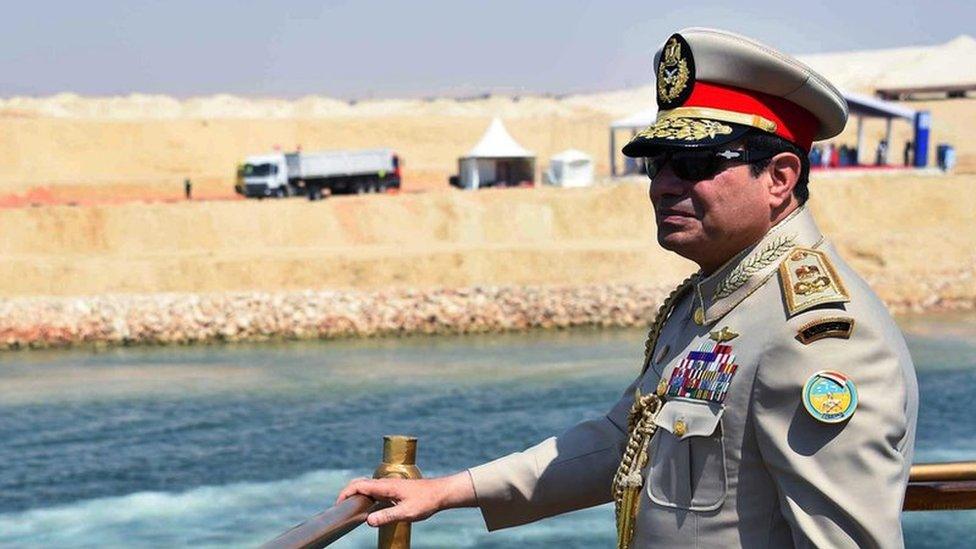Suez Canal: Effort to refloat wedged container ship continues
- Published
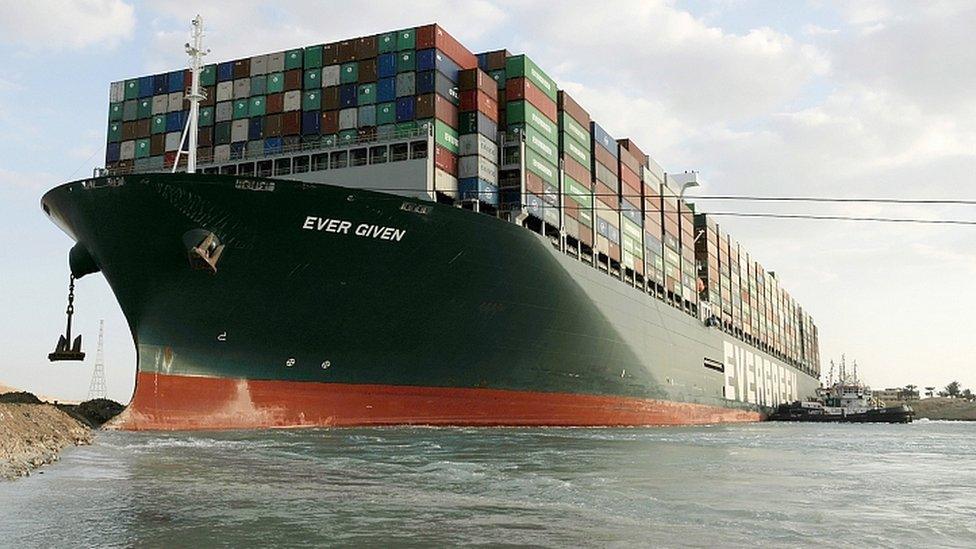
Tugboats managed to move the Ever Given 30 degrees in both directions, but it is still stuck
A giant container ship remains stuck across Egypt's Suez Canal after attempts to dislodge it on Saturday's high tide failed.
Canal officials said some progress had been made, however, and more tugboats were joining the effort on Sunday.
Alternative arrangements are being put in place in case the operation fails.
Egypt's President Abdul Fattah al-Sisi has ordered preparations to lighten the load of the stranded ship.
That would involve transferring some containers to another vessel or to the canal bank. Experts earlier told the BBC that such an operation would involve bringing in specialist equipment, including a crane that would need to stretch more than 60m (200ft) high, and could take weeks.
The Suez Canal is one of the world's busiest trade routes, and the Ever Given - part of the Evergreen fleet - has been wedged in it since Tuesday.
More than 300 ships are stuck on either side of the blockage and some vessels have had to reroute around Africa.
On Saturday 14 tugboats pulled and pushed the Ever Given at high tide to try to dislodge it. At the same time, dredgers continued to remove thousands of tonnes of sand and clay from where the bow was trapped in the canal's bank.
Although strong tides and winds complicated efforts, the tugboats managed to move the ship "30 degrees from left and right", said General Osama Rabie, chairman of the Suez Canal Authority (SCA).
Footage posted on Twitter appeared to show the tugboats honking their horns to celebrate this small victory.
Allow X content?
This article contains content provided by X. We ask for your permission before anything is loaded, as they may be using cookies and other technologies. You may want to read X’s cookie policy, external and privacy policy, external before accepting. To view this content choose ‘accept and continue’.

The SCA said in a statement that dredgers had so far shifted 27,000 cubic metres of sand to a depth of 18m (59ft).
Gen Rabie said on Sunday that although the vessel was still stuck there were "positive indicators" from the past two days' efforts.
"The rudder was not moving and it is now moving, the propeller is working now, there was no water underneath the bow, and now there is water under it, and yesterday there was a 4m (13ft) deviation in the bow and the stern," he told Egyptian state TV.
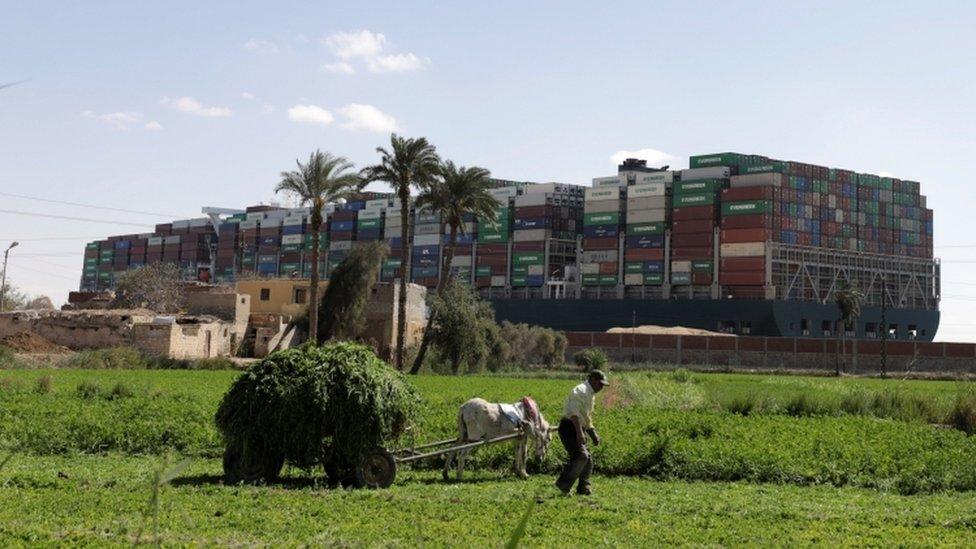
It may be necessary to remove containers to raise the ship in the water
However, in a possible complication, SCA sources quoted by Reuters news agency said that a mass of rock had been discovered under the bow of the ship.
Gen Rabie said that President Sisi had ordered preparations for the possible removal of some of the ship's 18,300 containers. He had previously said he hoped such an operation would not be necessary.
Initial reports said the 400m-long (1,300ft), 200,000-tonne vessel ran aground due to high winds and a sandstorm that affected visibility.
However, Gen Rabie said on Saturday that weather conditions were "not the main reasons" for the ship's grounding.
"There may have been technical or human errors," he told reporters, without giving details. "All of these factors will become apparent in the investigation."
A salvage company, working to free the Ever Given, says the operation could take weeks
Why is the Suez Canal so important?
About 12% of global trade passes through the 193km (120-mile) canal, which connects the Mediterranean Sea to the Red Sea and provides the shortest sea link between Asia and Europe.
An alternative route, around the Cape of Good Hope on the southern tip of Africa, can take two weeks longer.
According to data from Lloyd's List, the blockage is holding up an estimated $9.6bn (£7bn) of goods each day - or $400m an hour.
Gen Rabie estimated that Egypt was losing up to $14m in revenue each day that the canal was closed.
In Syria, authorities have begun to ration fuel after supplies were held up by the stalled traffic in the Suez Canal. The war-torn country was already struggling with power cuts and inflation pushing up the price of goods.


- Published26 March 2021
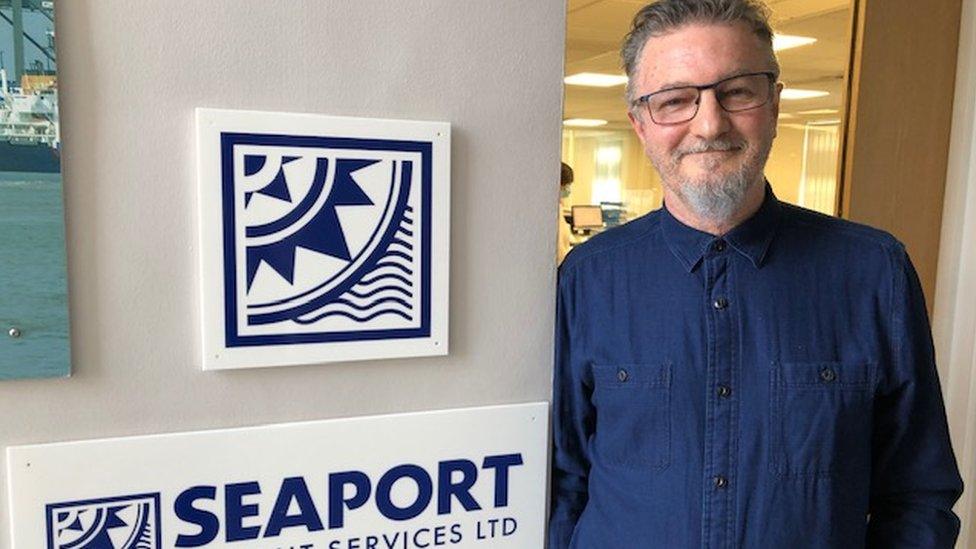
- Published29 March 2021
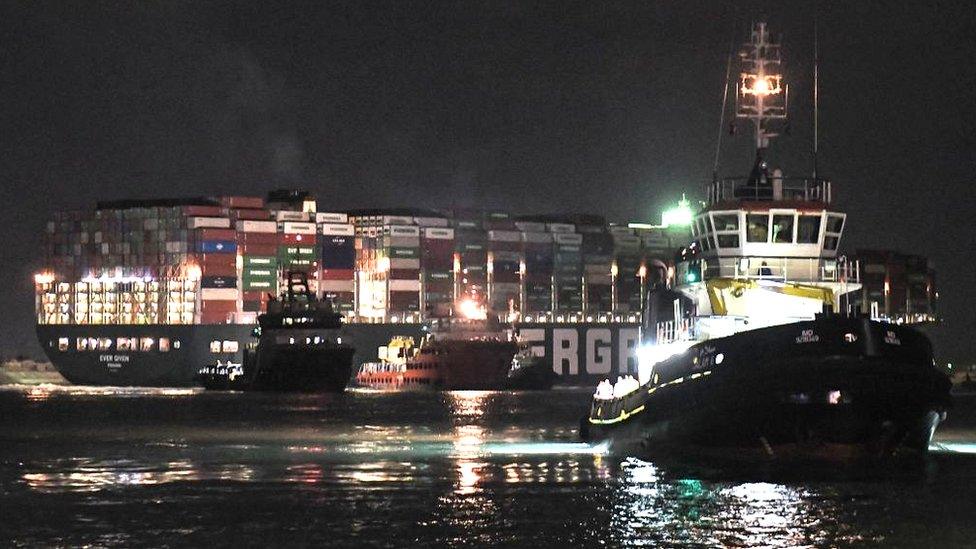
- Published24 March 2021
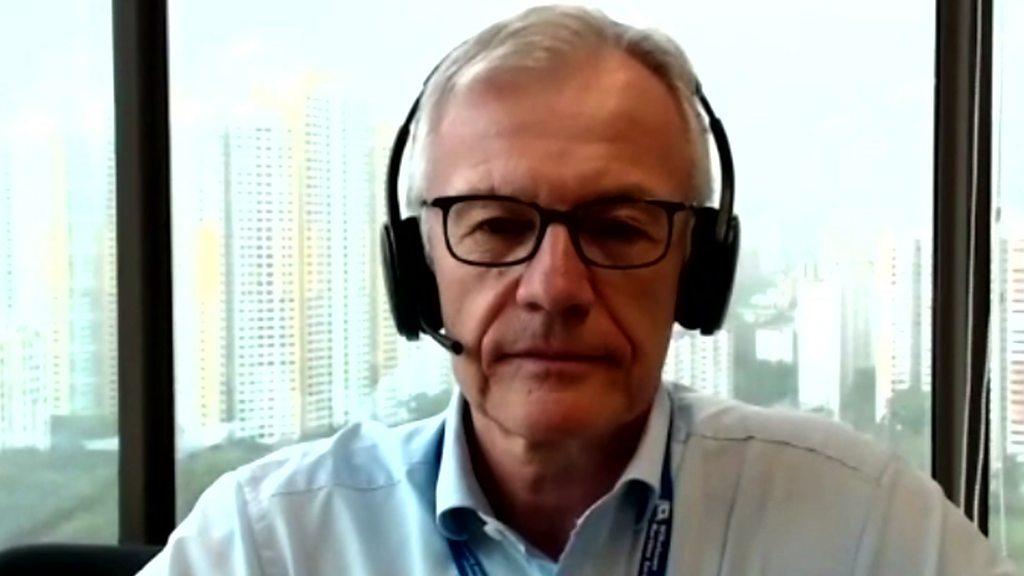
- Published6 August 2015
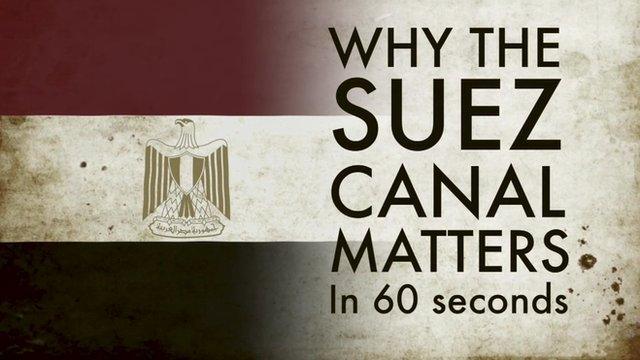
- Published6 August 2015
